(Un)Popular Opinion: Trail Angels, Stop Asking Hikers for Money
After my tirade calling out thru-hikers who hike with zero money, I thought it appropriate to examine another money-adjacent aspect of the thru-hiking world, trail angels.
If you’re unfamiliar with the concept of trail angels, they’re basically people who help hikers during their thru-hikes. A trail angel could be someone who picks up a hiker hitchhiking into town, someone at a trailhead who shares a beverage with a hiker, or someone who invites a hiker into their home for a shower, laundry, and place to sleep.
Trail angels render this assistance to hikers without the expectation of compensation. It’s here, within the realm of monetary exchange, we find the crux of this “trail angel” trouble.
The short of it? If you’re asking hikers for money, you’re not a trail angel.

Since the long-distance trails of the United States have risen in popularity, so has the prospect of “trail angeling”.
Many of the original trail angels, former fixtures of the long-distance hiking community, have retired in recent years citing either personal considerations or the influx of hikers as a reason for shuttering their services. That said, hikers will find no shortage of replacement trail angels springing up along the trail.
Historically, if a trail angel goes above and beyond for a hiker (or hikers) – especially if the trail angel in question opens up their home – hikers with the means will leave a donation for the trail angel. Some trail angels refuse donations from hikers. Other trail angels require donations from hikers (if you’ve never quite understood what a paradox is, this example is for you).
Requiring a donation (something that by definition is voluntary) strips meaning from the word; there’s no such thing as a mandatory donation. We have words for this; they’re payment, charge, or cost. A compulsory donation is like a margarita with vodka and grapefruit juice; it’s not a thing.
Before you raise your fists in protest, I don’t have a problem with hikers paying in exchange for goods or services. I have a problem with people operating under the banner of trail angel while demanding payment from hikers.
Let’s call these people what they are, unlicensed businesses (or trail pirates, if you prefer).
You’ll most commonly find these folks operating shuttles between towns and trailheads. Not only do these trail pirates take money from hikers, but they also take money from legitimate businesses operating around many trailheads and trail towns. But they can take other forms as well.
Providing accommodation to hikers and requiring a donation? You’re not a trail angel, you’re a hostel. Making meals for hikers and requiring a donation? You’re not a trail angel, you’re a restaurant. Doing hiker laundry and requiring a donation? You’re not a trail angel, you’re a laundromat. Taking candid photos of all the hikers you come across? You’re not a trail angel, you’re a creep.
Should hikers offer donations to trail angels who go above and beyond to help them during their thru-hikes? Absolutely, they should. Should hikers feel compelled (or be required) to surrender payment by those rendering services? Absolutely not.
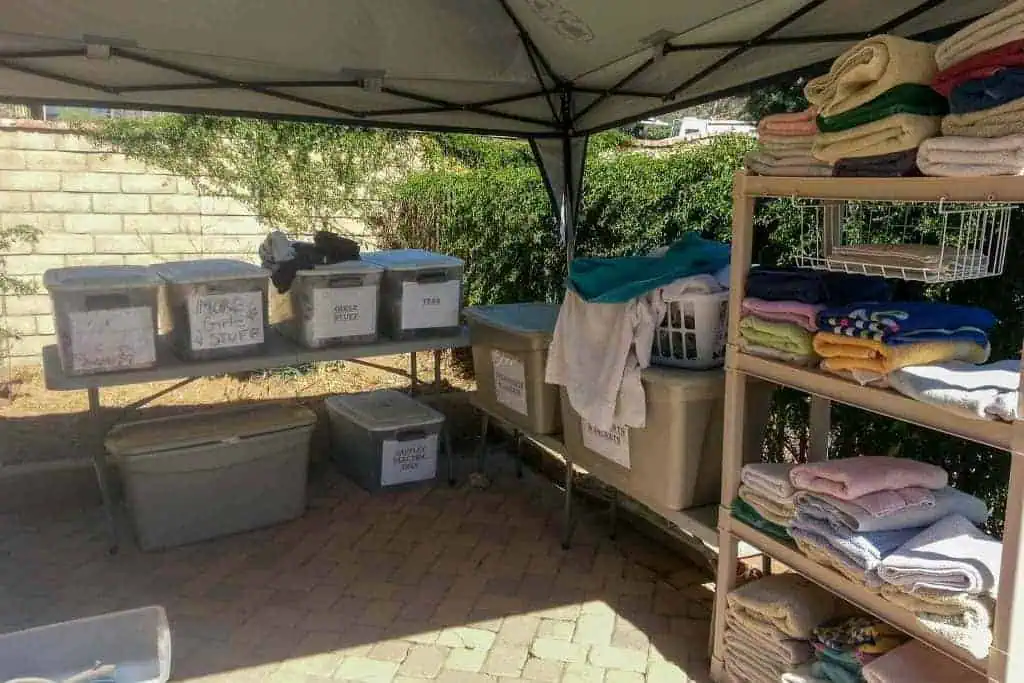
The “angel” part is fundamental to the term “trail angel”. Trail angeling is predicated on the work of altruistic individuals who help hikers with zero expectation of anything in return (although some people take this too far and I’ll be examining this in an upcoming post). Sometimes (if not oftentimes) the greatest trail angels are the ones who are completely unfamiliar with the term – or even unfamiliar with the trail.
Trail angels help hikers without the expectation of anything in return, simple as that. Long-distance trails existed and were hiked before any gained notoriety and before anyone was attempting to establish themselves as a trail angel. Offers of assistance by and serendipitous encounters with trail angels may add value or joy to an individual’s hike, but they are by no means necessary (related reading: Why Water Caches Are Bad for Hikers).
So if you’re out there operating under the guise of “trail angel” and you’re charging hikers to facilitate your “angeling services”, I ask you to reconsider what it is you’re doing (hint: you’re operating an unlicensed business), and I ask hikers to call out these trail pirates for what they are.
Just as people shouldn’t be out thru-hiking without sufficient finances, trail angels shouldn’t be out angeling if they’re going to require hikers to subsidize their efforts. Trail angeling is not a for-profit enterprise. If you’re trail angeling, you should be operating at a loss; nobody is forcing you to be out helping hikers (and ultimately, the hikers don’t need you).


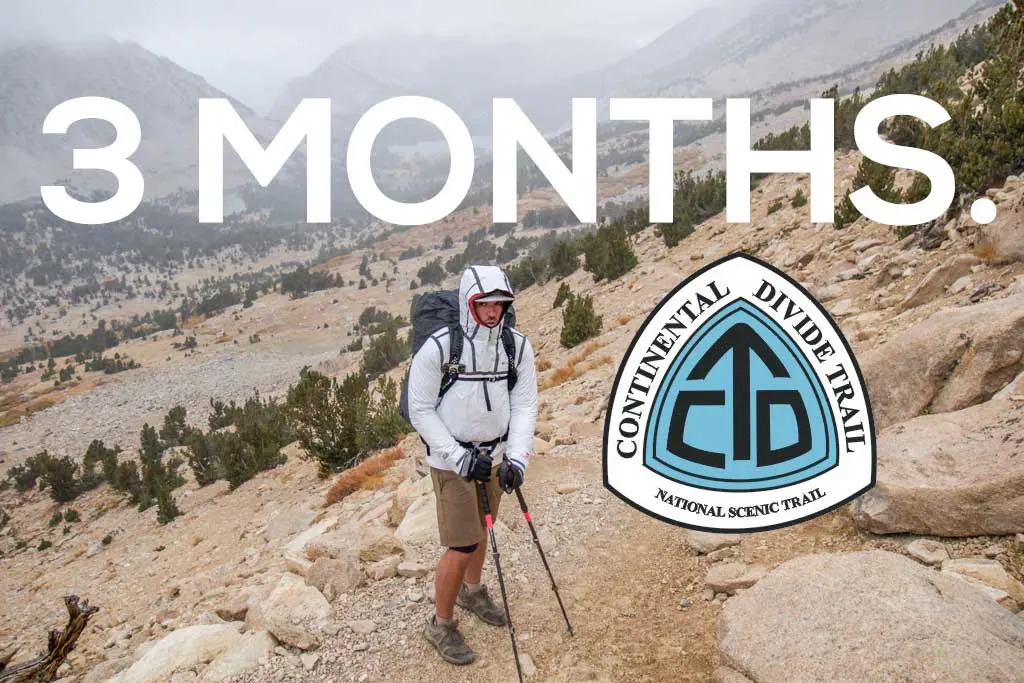
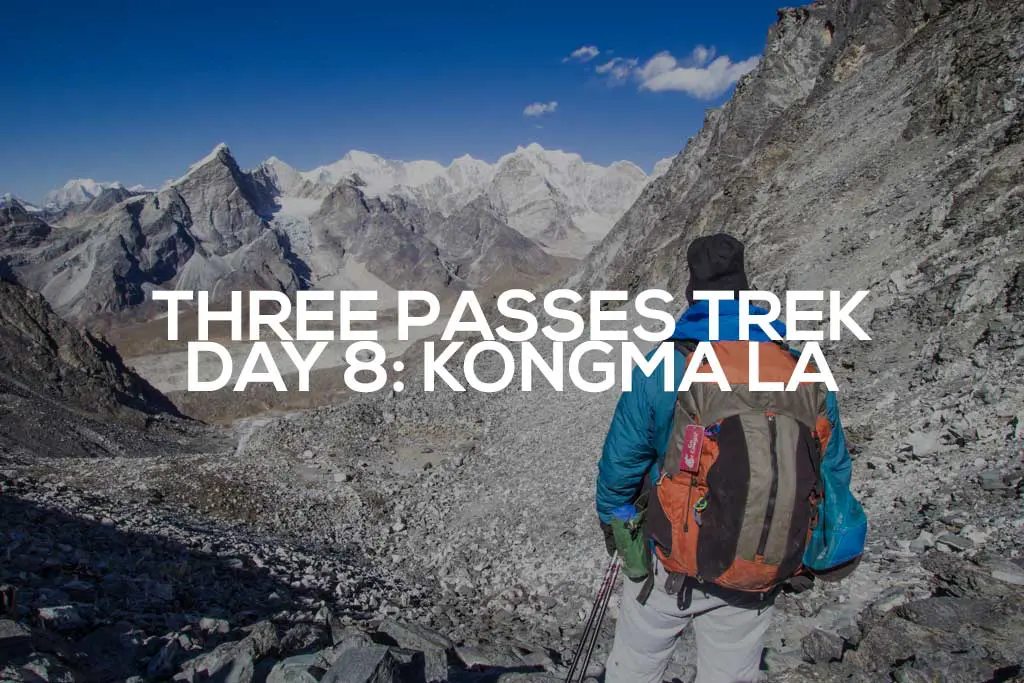

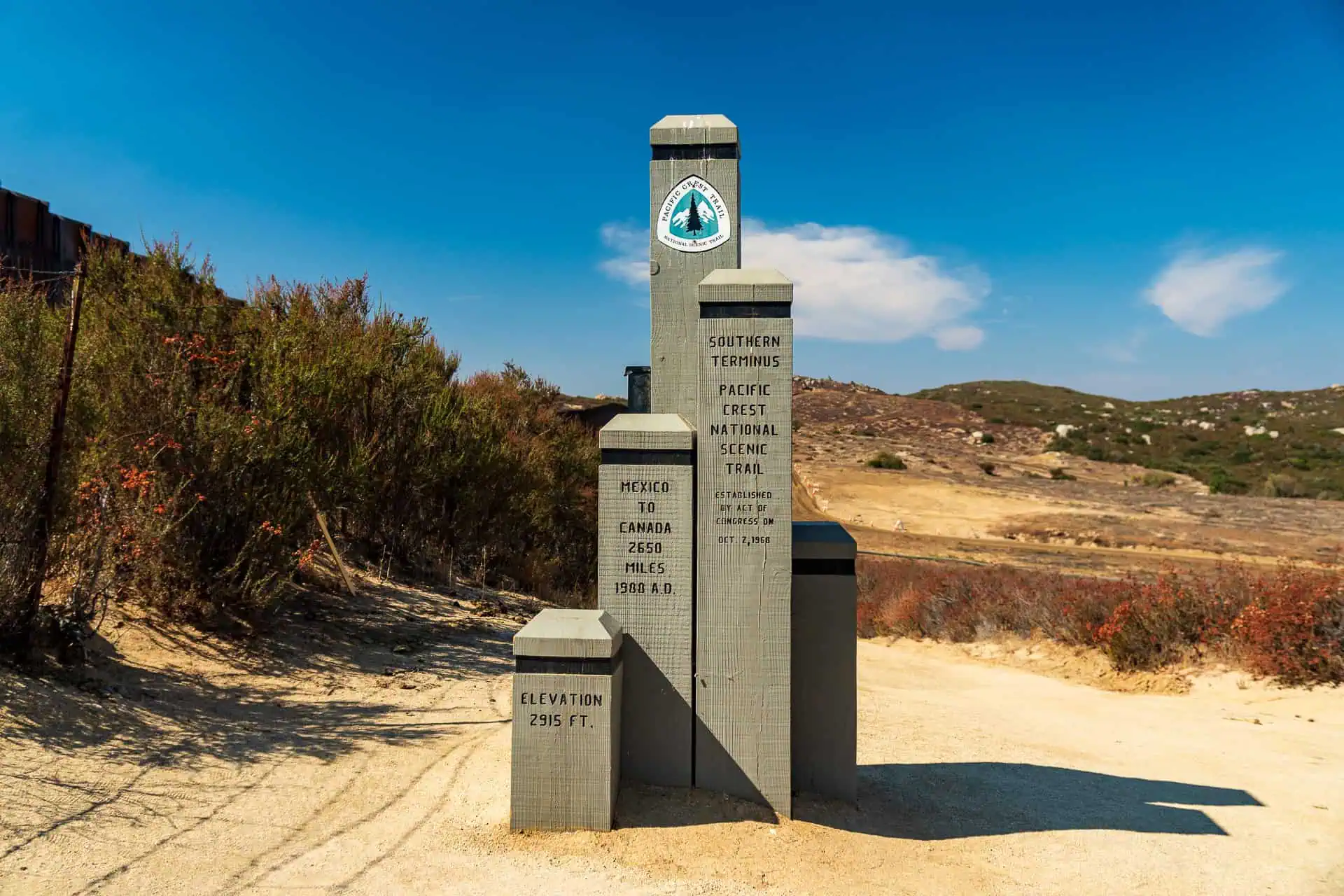
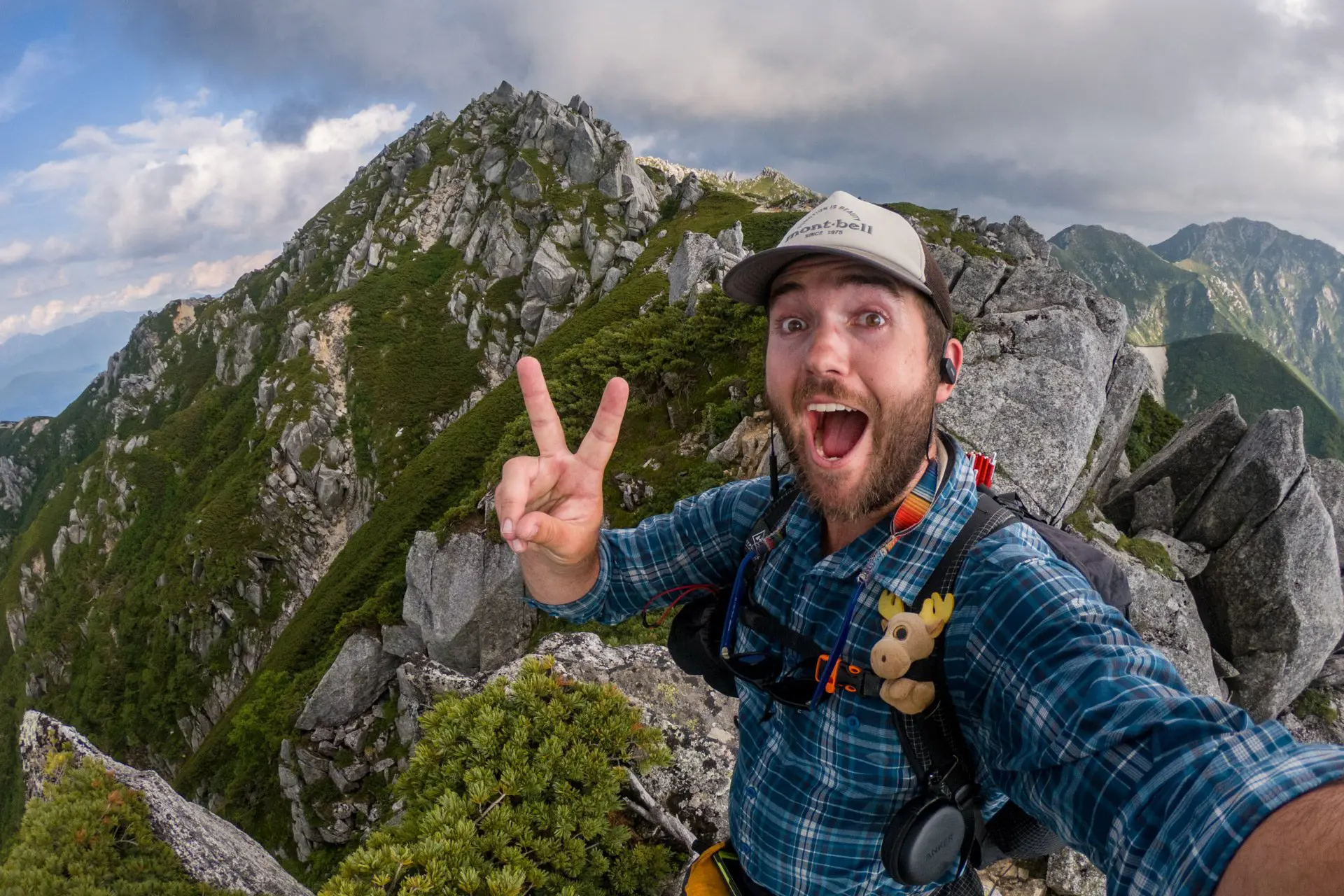
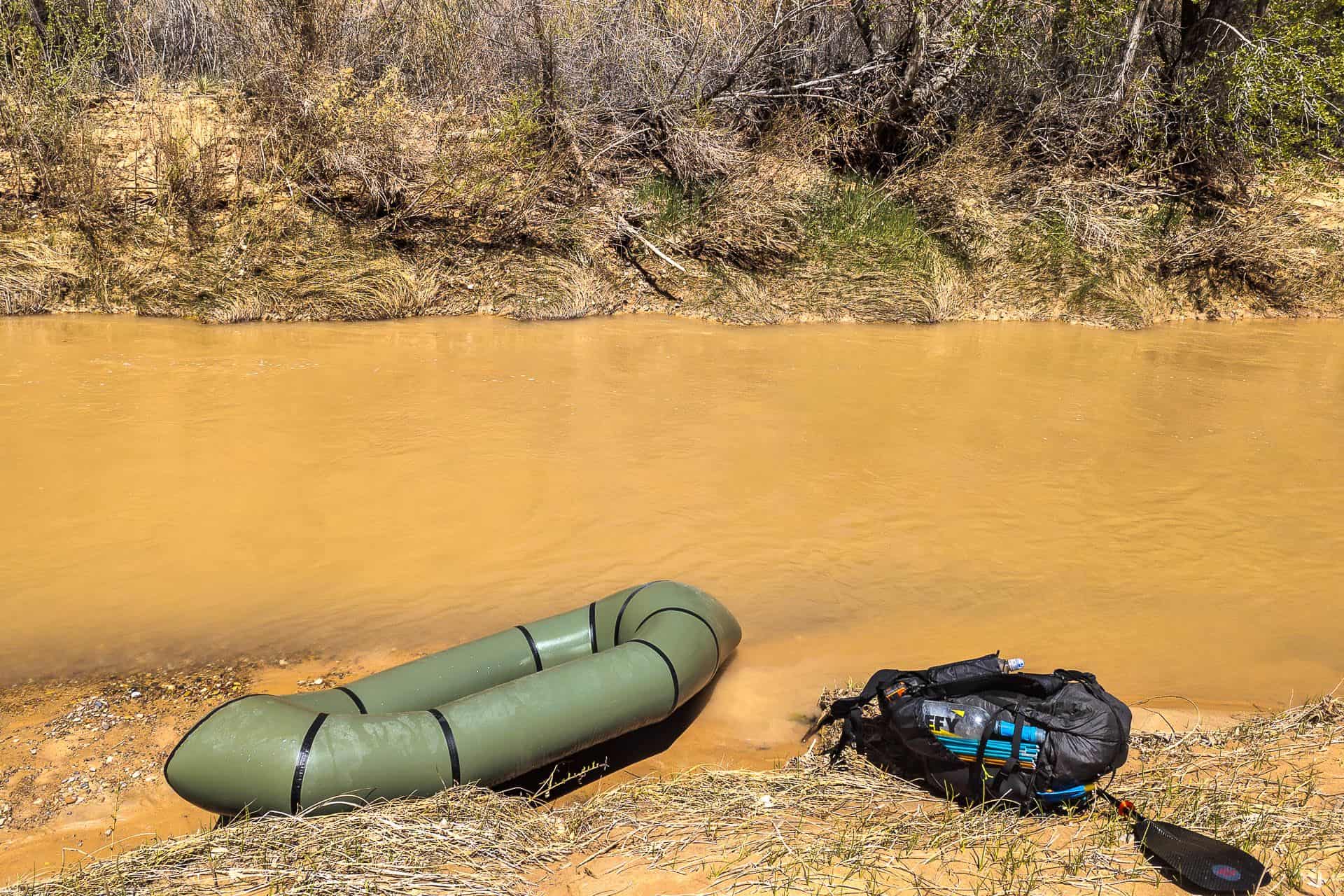
Mac, I couldn’t agree more with your comments here. I thru-hiked in 2016 and 2023. In 2016 hitches (meeting local people) and serendipitous ‘small’ food magic were such a pleasure. Getting on/off trail was easier as hitches were genuine and free even if I waited longer. In 2023 I experienced an unbelievable pressure to ‘donate’ unreasonable sums of money for rides (in 2 cases from obvious Uber drivers). It made off trail travel much harder with few genuine hitches. The resulting huge cost increase almost ended my hike and significantly detracted from the experience. Hikers should never ‘expect’ help, and angels should never ‘require’ donations. Neither are part of the hiking culture that makes the experience of the long trails what is was and should be.
Sadly, more trail pirates than trail angels nowadays.
Hey, I’m not a Pirate. We’ve hosted over 800 hikers at our dedicated hut on Te Araroa Aotearoa. Hosting, providing clean sheets and towels, giving advice, hot water, washing powder, kitchen equipment and space to chill, is not an action of Trail angelism. We as for a koha/donation of 20 bucks. We began these activities before the American cultural concept was hoisted upon us. But we do have an expectation of koha. That is to Pay your way. Give to the host what is required for your stay. Our koha received goes to our conservation project protecting rare native birds. For the time involved we could earn more money, more easily than having strangers at our breakfast table.
In our town, hikers can stay in a hotel, motel or the camping ground, for a lot more money. So our conservation work benefits as do the hikers. We have never been angels, nor pirates.
As the USA concept of trail angels grew here so did the hiker expectations of getting free stuff. There is a FB page full of requests. “We’re in Queenstown, it’s expensive can someone put us up?” ” We’re at the bridge in x..town, can someone pick us up. ” Pirates/ Angels it’s a 2 way street.
It’s most certainly a two-way street. I would check out this article as well:
https://www.halfwayanywhere.com/trails/pacific-crest-trail/unpopular-opinion-thru-hikers-stop-depending-on-trail-angels/
Ya gotta hit me while I’m ballin .
One of these days I’m gonna show up at your doorstep beggin fo a . .
This is a super complex topic not easily simplified in one very opinionated article, btw…. —>
Long time trail angels offer much more to the trail than a fly by night trail angel or a coincidental driver that is by chance heading your way. That person might lose their spouse and sole provider over the winter. Do they now kick themselves off the trail and therefore lose the second best interactions they receive every year because their primary status has changed? When I retire, do I stop trail angeling? Do I stop in part or in whole?
I took a tramily 7.5 hours one way from Mammoth Lakes to VVR, a 16 hour drive over 690 miles round trip for me. If I charged $20 for it, does that take me off the TA list? I paused when they bought me a burrito at Tioga Pass Gas Station. I pause every time they ask me about wanting coffee or a diet coke.
Over five round trips from KMS or Bishop to Chester this year alone [237mi, 3.5hrs one way].
I usually budget out about 5k a year. This year, I was spectacularly over budget by early May. I am currently sitting at about 12K mid November.
It’s articles like this that have me question if I should be kayaking more or learning how to surf better.
Plus, a hitch from Echo Summit on Hwy 50 is different than a hitch from Kearsarge Pass into Bishop or Lone Pine. And i know where the nearby shade and picnic table is for you to wait for my arrival. And I know where to wait for me in Bridgeport or where to hitch from, to get into Chemult. The inequality of value can’t really be compared in terms of compensation in either cash or experience of the TA.
Furthermore, flipping due to wildfires and climate related closures are only in the beginning stages of the thru-hike evolution. When the entire bubble has to skip from Etna to Ashland or from Crater Lake to Shelter Cove, you fail to see the importance of trail angels showing up to help out. I live in Sacramento, you tell me who is set up to replace me through the hail storms that happened that night(2022)?
I think the (few, phew) times I’ve been taken advantage of by hikers, alone, is upsetting enough without having to spend my time trying to decide what (of someone else’s) label I fall into.
That being said, every trail angel should know what their gifts are worth in both monetary terms, karmic value and benefit to the hiker- even if the hiker does not agree or show any appreciation for it.
I choose the the ‘don’t accept donations’ “Pay It Forward, creatively.” route for myself to avoid the complexities of other’s labels. I also choose to not label others based on my simplicity.
OutsideJay
Would you consider someone a “trail pirate” if they are a trail shuttler and write: “PS as this has recently been the subject of spirited discussion on Colorado Trail Facebook pages: I really enjoy helping Colorado Trail hikers and don’t charge fees for shuttles, but donations toward gas, car upkeep and my time are gratefully accepted.”
I’m not going to weigh in directly here, but I will say that I would not put this in my trail shuttle (if I had one). I don’t believe the absence of a sign would mean that those wanting to make a donation would refrain from doing so.
I found the trail “pirates” along the eastern Sierra especially egregious, particularly the shuttle people who wildly overcharge hikers.
Bike rentals would be more exciting.
Having hiked the PCT in 2019, and some longer sections of the AT, I completely understand and agree with this article. When we first experienced the concept of ‘Trail Magic’ and ‘Trail Angels’ on the AT a few years before our PCT thru-hike, we were completely blown away by the concept, perhaps never having experienced this kind of unquestionable kindness before in my life. It was euphoric and contagious and we subsequently looked for any and every excuse to pay it forward.
One thing, I feel the need to throw out there, though; There were a couple of instances, I think a little bit further north and towards the end of the season, when we were in Oregon/Washington and much of the bubble of hikers had petered out, we found ourselves in situations where literally the only way for us to get into town was to call an individual who was almost certainly unlicensed, but offered rides into town at a cost. I do not believe they were posing as ‘Trail Angels’ but we may have found their number on a local trail angel lift. They agreed to come out of their way to pick us up and run us into town, for a fee – these would have been longer drives, otherwise we probably would have just walked it. This probably was a ‘Taxi/Shuttle’ service, yes unlicensed and exclusively for Hikers, but without them in this location, we would have struggled to get in and out of town.
We were aware and happy to pay the fee at this point, being on a bit of a schedule to make it to the border in time before the snow and bad weather moved in towards end of September. We only just made it and many people, just a few days/week or so behind us were forced off the trail and prevented from finishing at that point.
Not wanting to contradict the article, but my point is that these people were up front and available. They were clear from the onset that they charged a fee (not much, probably cheaper than a taxi/uber for the same distance), in a remote part of the country. We were able to take it or leave it. I would hate to shame these people and their services out of existence as they proved quite essential in some areas. Sure, we were truly grateful of Angels – as we all know, Calories are expensive and our bank balance was running on vapors by the time we made it to Canada. In my eyes, the true ‘Pirates’ of the trail are the ‘legit’ business and stores that don’t put prices on their wares and charge $3 for a Snickers when they see a Hiker come through the door.
It sounds like you get it. Basically, this article is calling out the differences between trail angels and those operating under the guise of trail angels while collecting money from hikers. People operating off-the-books shuttles are a related but different problem.
First meeting with a trail angel, I’m from Australia, was “Nasty Gap” on the AT. Loved the whole concept of meeting some random person/s in the middle of nowhere offering a snack, drink or meal, and in this case got a lovely beanie with the white blaze on it. I can’t remember any of them asked for anything or taking a donation when offered. I also have no problem with with people advertising their services, for cash, on the notice boards. If you use them you know that it costs. But I did get caught twice by people picking me up at trailheads and to take me into town. I thought they had just offered a ride, I was hitching, and was prepared to offer a donation, instead once on the way they informed me of the price, which in both cases was high. They hang around popular trailheads for this reason. Got out and got an actual hitch, one with a cop. It’s these sorts of people that I have a problem with, waiting till you are a captive in their car before springing the costs on you out of the blue.
It sounds like you got the full trail angel/trail pirate experience!
Your article was posted in a closed FB group of through hikers that I belong to. I have never through-hiked myself by decided to volunteer my time (and open my home ) to through hikers doing a trail near my home this past summer. I was in between jobs and had a unique opportunity to do this; I also had a friend through-hiking said trail, and I thought it might be a good way to *pay it forward* on his behalf. Overall, I had a good experience/am glad I did it, but I have taken myself off of the super secret trail angel/shuttler list that the non-profit that oversees the trail keeps. Mainly because I’m now working FT again, but, also, because I was, at times, stunned by some of the asks. I was up front from my offer/post and whenever asked by hikers (sometimes up front) that my services were offered at not charge. That I was doing this as a trail angel.
In my offer, I was very clear about where I was/was not able to pick hikers up; I live about 20 miles from the trailhead. One hiker messaged me and asked if I could pick him up at a national park 90 miles away and shuttle him to said trailhead. When I said I couldn’t but that if he could get to town, he could ride with another shuttler I was taking that weekend, he found a bus to town. He ended up camping in my back yard, and he joined my friends and me for dinner. It was lovely, and we all enjoyed his company. He also asked if he could leave a backpack of clean clothes at my house to pick up upon his return to the city. I was fine with that. Then, I had a family emergency come up – my elderly mom was hospitalized out-of-state, and I had to leave abruptly. I messaged this hiker to let him know that about my emergency and told him where I (safely and securely) hid his pack in case he needed to pick it up when I was gone. He thanked me…and then asked if he could stay at my place with my dog/house sitter when he got back to town. I said no.
Two young women messaged me about a ride to the trailhead and staying at my home the night before their travel. I said I was happy to accommodate them. No charge. Because, to your point, I volunteered to do this as a trail angel. I was excited to meet them, learn more about them. I was in communication with them the week of their travel to firm up plans. “Will you be providing dinner and breakfast?”, they asked. I wasn’t planning on it, but I was happy to. Oh, and, btw, they’re vegan. Then said emergency came up, and I had to tell them that I needed to leave my house at 5:00 am. the morning I was supposed to drive them to the trailhead. I told them they were still welcome to stay at my place and that I would provide dinner but that they needed to leave with me in the morning at 5:00, and that I couldn’t drive them to the trailhead. They were appropriately concerned. “I hope everything is okay.” They ended up finding other lodging/trail shuttle services, but not before asking if I had any neighbors or friends who could accommodate them.
I recently listened to a great podcast – I think it was Wild Ideas Worth Living. – about a couple who are trail angel to people on the PCT. They open their home, feed hikers, shuttle them. I think there are a crew of volunteers that help. From what I understand, when one encounters a trail angel – or trail magic – it is usually seen as a surprise serendipity. In reading some posts on through hike sites, it sometimes feels like trail magic is becoming expected.
p.s. I’m going to start following your blog. Interesting perspectives!
It was incredibly presumptuous for them to have asked if you would be providing food. That’s a red flag as far as trail angels should be concerned. That said, it’s incredibly kind of you to make yourself available to hikers!
I have given a few rides and accepted a few. That’s about it. My interactions could have taken place anywhere, not just on long trails. Mainly I pay for things (food, lodging, shuttles) and I prefer it that way. When you are paying the expectations are clear and there is no awkwardness. Like others have mentioned, social media is plastered with hikers who request all sorts of things from angels. Like trail angels are some kind of service that hikers can expect. It really leaves a sour taste.
It’s true that hikers have come to expect far too much from trail angels. This will be addressed in an upcoming post.
I agree with the annoyance of people who act like they are benevolent and helpful as a guise to self enrichment in one way or another.
Part of the problem (and I’d argue a rather serious problem with language usage generally) is that they are degrading the concept and meaning of the term “Angel.” The manipulation of language to devalue it is a huge issue.
Pirates loot others for enrichment and to call those offering a voluntary service, even if they are being disingenuous about it, “pirates” is also incorrect and problematic.
It’s conflating business with theft, those are two very different things. Income or property taxes are theft; it’s the forced extraction of wealth from someone at the threat of violence because the majority outruled the minority.
Did you really come here to talk about trail angels?
It seems to me that they are in fact talking about trail angels. He’s talking about a problem of semantics. His point is that people are repurposing the term and bastardizing the meaning by using the term as a guise to manipulate people. The second point regarding pirates seems a bit different; I think he’s saying that although people are being a little disingenuous, they’re more like a business than a pirate because they aren’t actually out there stealing your money. At the end of the day, if they don’t make it clear they’re offering paid services, they can’t actually force you to pay them, so it’s not really piracy, it’s just a bit underhanded.
I got so much help even I didn´t ask for anything. One trail angel paid my hotel and food, others give me a ride, more food, water and so on. I tried to pay, no succes, so I stop.
Maybe they think I was so old that they have to help me so they don´t need to call an ambulance? (I was 76+ when I hike PCT 2018)
That’s one reason. Maybe you reaping the rewards of all your acquired karma?
Random comment, but that’s not an oxymoron, it’s a paradox. I used to make that misnomer myself.
Right you are! Thank you for helping me to continue to learn.
If a payment is expected, then please state so up front. That is called a transaction and not trail magic.I had one bit of trail magic that was especially memerable, coffee and donuts. I passed on the donuts, but drank about three cups of fresh brewed coffee and relaxed while sipping them down for a half hour or so. Most of the other trail magic I just hiked on past unless there was something especially enticing. Obviously coffee is enticing to me. *bigcaffeinatedgrins*
Anyway, I have said this more than once and I mean it, trail angels are ruining the PCT and a few other long distance trails. Many hikers have become dependent on trail angels. I read requests on pages from thru-hikers and it is pathetic what some ask for. I can only shake my head. On the other side of the coin, some trail angels think they are indispensible. This especially applies to the ones offering rides and stocking water caches. And of course that just further promotes hiker dependence.
Trail magic should be just that, magical.
It’s nice to hear from someone who gets it.
The twisting of a an idea, a service or an occupation to serve a personal purpose has been the basis of a scammers agenda. In your lis please include cops who call themselves Heroes. Why is a cop a “Hero” when he’s getting paid to do a job? And then complain that nobody appreciates their work. Why are they asking for total adulation, all the time? When I applied as a police officer, it clearly stated that the job was dangerous and I could get killed, take it or leave it. I see so many stealing, ducking their responsibility an the wanting to take credit for things they didn’t do. I’m sick to my stomach.
Why is a good Samaritan not a Hero? ……..The list goes on.
This is a side of hiking I’ve never even HEARD of, let alone experienced.
Then again, being on a trial in the wilderness for 2 weeks is the absolute limit of my experience.
I didn’t have the time or resources to go further, so I didn’t.
Am I understanding this correctly: some hikers are going beyond their self-funded abilities and relying on charity or donations of food and stuff?
Someone who freely donates to a hiker is just a nice decent human.
A hiker who is COUNTING on those donations seems like an under-prepared hiker.
Please elucidate me!
Hikers on long-distance trails without the means to be self-sufficient and who depend on strangers to help them should not be hiking long-distance trails.
This comment really had nothing to do with the article. That said, I appreciate your (apparently) having taken the time to read.
100% agree that asking or demanding compensation disqualifies someone from being a trial angel.
I disagree that anyone earning money without a business license is “pirating” money from “legitimate” businesses. I believe people have a right to earn a living and two consenting adults don’t need the government to step in and decide if every voluntary exchange of goods and services is “legitimate” or not.
All too often we see business licensing schemes from local governments with excessive fees and strange arbitrary requirements attached to them solely for the purpose of placing barriers to entry and protecting the established and well connected from new competition.
Not saying that’s happening in all these cases and anyone claiming to be a trail angel shouldn’t be seeking compensation but I think we need to reevaluate negative over tones on the underground economy.
Thank you for understanding what’s at the root of this article – the fact that people who charge hikers for their services, whether or not they’re “just trying to recoup costs”, are not trail angels.
I understand the root of the article. On the flip-side, there are hikers who want to be waited on hand and foot by trail angels. Not sure where this attitude comes from, since others have attempted the same thru-hike, without such demands. Years ago on one of the CT forums, a hiker wanted a trail angel to wait for their arrival at Molas Pass. When I suggested it was an easy hitch from there into Silverton, the hiker responded I was ill-mannered for suggesting such a horrible thing.
This hiking season, a hiker on one of the CT forums claimed to be an AT completer, and was looking for a ride from Durango back to Denver. Sharing with other hikers was not an option for this guy, given his AT completer celebrity status. So much for the gratitude that most thru-hikers feel upon completing a long trail.
I offer donation-based shuttle rides from DIA to Waterton Canyon for CT hikers. I also help them complete errands along the way to purchase fuel, last-minute grocery items, etc. One hiker asked what the typical donation was and tried to haggle it down. I give students the ride for free. People generally give me less money than what folks pay who use the public transit/rideshare option to get to the trail. I don’t consider this shuttle to be trail angeling.
Have also never asked for money when providing trail magic, or shuttling hikers from the trail magic areas to town.
I’ve never been a fan, nor patronized, trail angels. Most thru-hikers are well enough heeled they don’t need their services. If they do they probably shouldn’t be thru-hiking.
I’d rather see trail angels devote their time and resources to truly needy organizations.
I’ve got another article in the works regarding the trail angels who are more in it for themselves than they are for the hikers, but I feel like I should let the dust settle here before I make any moves.
What are you saying. TA should ignore an injured hiker, or Section hikers that are in this country not knowing the logistics of where they can bail off the trail for medical or personal reasons? There are areas that are nearly impossible to get to hikers that have been injured or having heat related problems. Should their request for help or information be directed to Search and Rescue volunteers? In our area to the North of use there is 80 miles trail that has only 2 roads that we can extract hikers that need to get off trail. The SAR volunteers would be very busy getting to the hikers, or have a Highway Patrol helicopter winch them and get them to the nearest area so a medical team can evaluate their condition. Maybe the hikers would think twice about hitting their SOS button. Our CHP doesn’t charge, as far as I know, but they do bring the hiker to an area for medical choppers, they charge into the 10’s of thousands. It’s seems to me that some of these responding thru-hikers are looking down on anyone who is not like them.
Never asked for money (gasoline; snacks). Never will.
Sounds like you may qualify as a trail angel.
As a hiker i am quick to offer a donation before anything is asked or implied.If i don’t need or appreciate water catch or a cold beer etc. then hike on its your hike dudes.Now as an angel i am quick to say i do not except donations my time an effort to contribute to hikers is free i can afford it an its just plain karma .I have received mega help over many years most likely because i am a giver an the karma just keeps flowing . FYI hike on.
Absolutely nothing wrong with hikers offering up donations. I too have been on both sides of the equation. Always pay it forward.
I 100% agree with everything in this article and have experienced trail pirates on the PCT in 2019. If anyone on the PCT in 2019 stopped at Mike’s place, or anyone on the PCT this year (2021) stopped at the Budpharm, you may have had interactions with a Trail Pirate. To be clear, I had a great experience (overall) at both of these places myself. Also, I believe work exchanges are a different matter entirely, as there is much more nuance and no exchange of money.
When I was at Mike’s place in 2019, I agreed to work in exchange for food, which I thought was fair. I did some pretty tough landscaping and in return, I received glorious pizza! Fair exchange in my book. I then witnessed one of the “hosts” at the Budpharm consistently and passive-aggressively berating individuals who ate the “Free” pizza but did not offer the non-mandatory “Donation” in return. This individual yelled things at departing hikers like *insert aggressive tone* “Thanks for your donation!!” knowing that these hikers did not donate money and ate the pizza. This is plain wrong and brought bad vibes to the hiking community I was there with at the time.
Skip ahead to Budpharm in 2021 (To be clear about Budpharm, Dave, the owner, is an amazing individual in my eyes and works tirelessly as a true trail angel). I was not thru-hiking at the time, but rather visiting the budpharm to do some trail magic myself with another friend. I brought all sorts of goodies for the thru-hikers, asking nothing in return. My goal as a self-proclaimed trail angel was simply to socialize with the current PCT class and hear their stories. After a couple of days, I left with my friend. While I was leaving, I was confronted by the same individual from Mike’s Place in 2019. This individual said again *Insert Aggressive Tone* “Thanks for your donation man!”. I replied instantly saying “I did donate, you just didn’t see it. I donated $5”. This individual offered no reply and walked away. This individual was a trail pirate.
My point in writing this is to shed light on the negative experiences I have witnessed both on and off the PCT. If you’re a trail angel, please please please, do not ask thru-hikers for money. It never hurts to have a donation bin and say something along the lines of “If any of y’all feel like donating, here’s my donation bin, no pressure!”. This leaves it up to the thru-hiker to donate if they feel inclined. I welcome other people’s experiences/opinions on this topic.
Thank you for the well-thought-out input. I think you’ve made a lot of excellent points here.